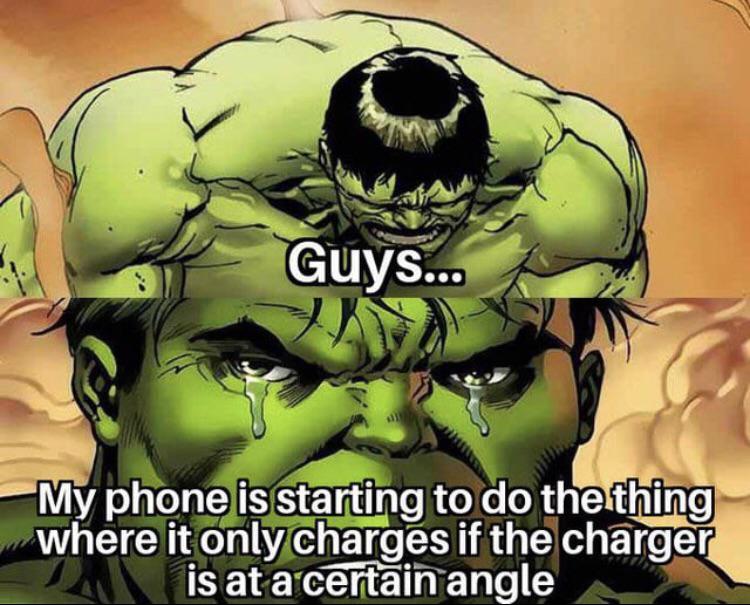this post was submitted on 03 Oct 2024
863 points (97.4% liked)
Funny: Home of the Haha
5785 readers
976 users here now
Welcome to /c/funny, a place for all your humorous and amusing content.
Looking for mods! Send an application to Stamets!
Our Rules:
-
Keep it civil. We're all people here. Be respectful to one another.
-
No sexism, racism, homophobia, transphobia or any other flavor of bigotry. I should not need to explain this one.
-
Try not to repost anything posted within the past month. Beyond that, go for it. Not everyone is on every site all the time.
Other Communities:
-
/c/TenForward@lemmy.world - Star Trek chat, memes and shitposts
-
/c/Memes@lemmy.world - General memes
founded 2 years ago
MODERATORS
you are viewing a single comment's thread
view the rest of the comments
view the rest of the comments

Magnetic charging loses some energy in the form of heat on both coils.
Technologies like MagSafe lessen the severity of energy loss via ensuring the coils allign, however there is still some energy lost in the form of heat.
This is just a limitation of electromagnetic induction.
It's a producer of heat placed right next to the battery.
This inefficiency also makes it take more energy to charge your battery. However, I would imagine it's a nominal amount.
That's an interesting theory. I'd like to see some numbers because I really doubt that this heating could be anywhere close to the many other kinds of heat produced through normal phone use. Especially considering that you're unlikely to be stressing the biggest sources of heat in your phone (the screen and the processor) while it's sitting in a wireless charging cradle. Also, the charging circuits certainly monitor and adjust for this kind of heat dissipation specifically and are able to control it far better than, for example, the sun hitting the screen or a warm pocket.
I can only offer you my experience-based evidence, but three magnetic chargers I've used have all made my phone significantly hotter then charging it at the equivalent speed with a cable.
This has been true across 6 Android devices. Two from Google. Four from Samsung. However, I will also say that because of this trend, I stopped using wireless chargers about a year and a half ago, so it's quite possible they might have improved since then.
Yes, the tech has gotten a lot better. 6 phones over about 12 years (rough length of time since debut of inductive charging in smartphones) averages to about 2 years per phone. If you weren't getting the flagship phone each year that lifetime would be shorter. That was comparable to the lifetime of each over my phone's during that same time, none of which had wireless charging. The phone I have now is the first I've had to use inductive charging and it has already lasted twice as long as any of the others and shows now signs of deterioration.
So your anecdotal evidence trumps everyone elses, as well as actual knowledge of the chemistry involved?
I typically use my phones for longer than two years. This included both mine and my wife's devices.